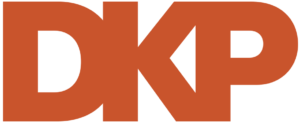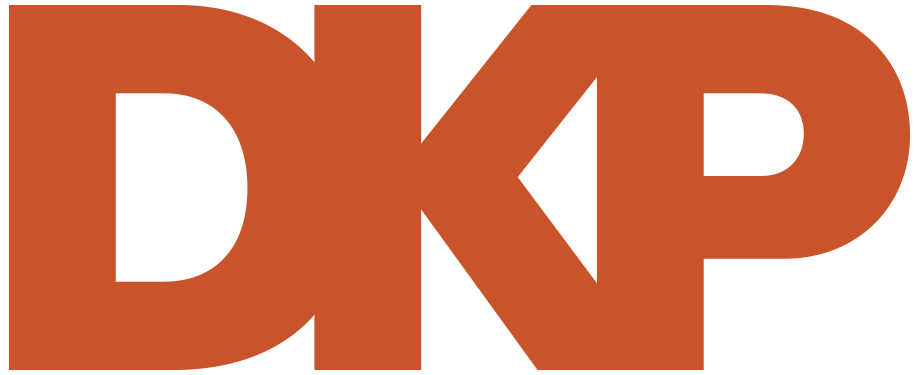
THE DEKLEPTOCRACY REPORT
November 15, 2024
Welcome to The Dekleptocracy Report! The Dekleptocracy Project (DKP) is a 501(c)(3) following the authoritarian money from Virginia. We’re on a mission to show how existing levers of accountability can protect democracy and prevent authoritarians, their networks, and enablers from exploiting or circumventing the US system. As always, please sign up and forward this newsletter.
BOTTOM LINE UP FRONT
Welcome to our 29th newsletter.
First, an admin note: You may have noticed the new logo on our newsletter and website, so we’re pleased to announce that The Dekleptocracy Project is now DKP. This rebranding has been in the works for a while, but it’s perhaps fitting it happens to come at a time of transition for America – and the world. We’re entering an uncertain age, but DKP is going to continue doing what we do best: covering hot-button topics at the intersection of anti-corruption, economic statecraft, and national security in the Dekleptocracy Report, and conducting long-term investigations to provide journalists, activists, and officials with the information they need to go after the corrupt enablers of authoritarianism.
However, last week’s election will shape the fields we work in for years to come, so in this issue of the Dekleptocracy Report, we’re giving our reaction. We’ll be blunt: America may now face an explosion of corruption the likes of which we haven’t seen in our lifetimes, from both domestic sources and foreign authoritarians, with potentially severe consequences for both American rule of law and the liberal international order. It’s imperative for elected officials of both parties and civil society alike to exercise increased vigilance and work together to hold the incoming administration accountable – and make sure democracy survives within and beyond our borders.

DKP’S STATEMENT ON THE 2024 ELECTION: A TIME FOR VIGILANCE AGAINST CORRUPTION AT HOME AND ABROAD
On November 5th, Americans elected former President Donald Trump to a second term. With a decisive electoral college win and a real (if narrow) majority in the popular vote, Trump now enjoys a clear mandate and broad legitimacy. But American democracy is about more than simply holding elections; it is commitment to a set of institutions, norms, and values rooted in the liberal and republican traditions, and to a vision of a diverse, inclusive, just, and pluralistic society. This ethos is enshrined in the Declaration of Independence. It’s in the Pledge of Allegiance. It’s printed on the dollar.
While DKP is a nonpartisan organization, we must express our grave concerns: By now, the inescapable conclusion for any informed observer must be that President-elect Trump does not share that commitment. His authoritarian inclinations are clear, and his emerging policy agenda is deeply troubling, as are some of his nominations for key positions. But we believe the single greatest threat is the potential — based on the record of the previous Trump administration — that a new Trump term will see an explosion of corruption, which can be lethal to democracy if it becomes systemic. All told, a new Trump administration may cause severe damage to the institutions of the American republic, and, by extension, the liberal international order that depends on our nation’s leadership.
But this does not have to be the case. Trump is the duly elected president and we must deal with him and his administration if we are to have a functioning government for the next four years. Luckily, our nation’s Founders specifically built checks and balances into the constitutional system to mitigate the power of the executive. This is especially true of Congress, which now must act – as constitutionally intended – as a bipartisan check on the presidency. More broadly, it is time for people of all partisan affiliations who care about our republic to act as its guardians, to exercise vigilance, and to hold the Trump administration to the strictest account. This will be particularly true in the fight against corruption and in maintaining American support for the broader global fight for democracy against authoritarianism.
Fighting Corruption and Safeguarding the Rule of Law at Home
The most immediate concern for the American polity in the coming years should be preventing an eruption of corruption. To be fair, corruption in America is a bipartisan problem, and loose campaign finance laws, multiple Supreme Court rulings, and the lobbying industry have contributed to the growth of an entrenched system of self-dealing and pay-to-play relationships across the public and private sector that is legalized, but widely perceived as corrupt. Despite its promises to “drain the swamp,” the first Trump term was characterized by repeated scandals indicating a pervasive culture of corruption within the administration. This, combined with the history of the President-elect’s own business dealings, including in crypto, indicates a high risk that a second Trump term could see outright corruption explode to truly unprecedented levels. In the worst case, this could potentially even transform the US into a full-blown kleptocracy.
To prevent this from happening, Congress, the judiciary, state and local government, and civil society all have roles to play. Republicans and Democrats in Congress must work together to balance executive power, and use legislation, committee oversight, and the confirmation process for appointments to hold the administration accountable. Likewise, the judiciary must recognize the threat to American democracy posed by corruption, and must enforce laws against fraud and bribery rather than allowing corrupt practices to flourish. State and local governments must safeguard their own institutions against corruption. Finally, civil society must function as a watchdog at all levels of government. The same open source intelligence (OSINT) techniques used to detect illicit transactions with foreign authoritarians can and should be used to detect domestic corruption and demand authorities punish wrongdoing.
Preventing Foreign Authoritarians from Exploiting Access to the US
Speaking of foreign authoritarians, a rise in domestic corruption could create entry points for strategic corruption from Russia and China both in the US and abroad, and empower aggression against their neighbors. The second Trump administration is at least likely to be tough on China, which is a major source of corrupt influence in the US (as DKP has previously reported). However, Russia – the kleptocracy par excellence – wrote the book on weaponized corruption. While the exact nature and extent of President-elect Trump’s dealings with Moscow (and those of his associates and fellow travelers) are topics of endless controversy, a concerning relationship unquestionably exists, and Russia’s efforts to secure a Trump presidency are well known. In his initial post-election call with Russian President Vladimir Putin, Trump did at least warn him not to escalate in Ukraine. However, exactly what form a second Trump administration’s Russia policy will take is unclear. Trump’s campaign-trail promises to end the Ukraine war in 24 hours suggest a willingness to cut a deal with Russia, which will likely include pressure on Ukraine to cede territory, and possibly entail lifting of sanctions on Russia.
This could open the floodgates to Russian money laundering and investment of ill-gotten gains in the US, as well as boosting global Russian energy revenues and loosening restrictions on trade in dual-use goods to Russia’s defense industry. This, in turn, will enable an emboldened Russia, fresh off a perceived victory, to take advantage of any ceasefire in Ukraine to refit, rearm and try again in a few years against Ukraine – or even a NATO country – which it will almost certainly do. To prevent this, the US must not only sustain bipartisan support to Ukraine and our NATO and East Asian allies, revitalize the defense-industrial base, adapt to changing technologies, and fix the DoD’s recruitment issues to prepare for major protracted conflicts in two theaters. It must also ensure vigilance against foreign-linked corrupt influence, especially emanating from Russia. Congress can demand the executive maintain and enforce Russia sanctions, even using legislation to enshrine those sanctions (mostly enacted through executive order) into law, while states with major banking and finance sectors can use state-level oversight of those industries to protect their economies – and the nation’s – from corrupt foreign investment. Finally, civil society watchdogs can continue to hold officials to account, working across borders with the same OSINT techniques that have been used in recent years to designate thousands of entities connected to Russian defense trade networks.
Let’s not mince words: a second Trump term could be a threat to the survival of American democracy as we know it. But it doesn’t have to be. If the parties work together in Congress to enforce clear guardrails for the executive as our Founders intended, and if civil society works to prevent corruption – foreign and domestic – from spreading and taking hold, even Trump’s staunchest opponents could find a modus vivendi with the administration that will enable the country to survive the next four years.

